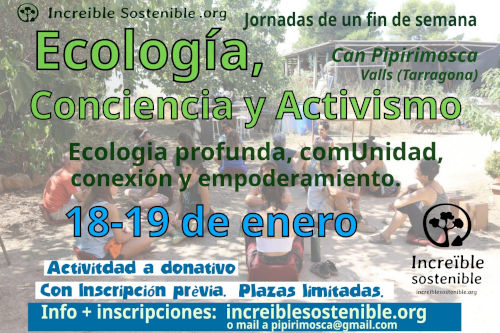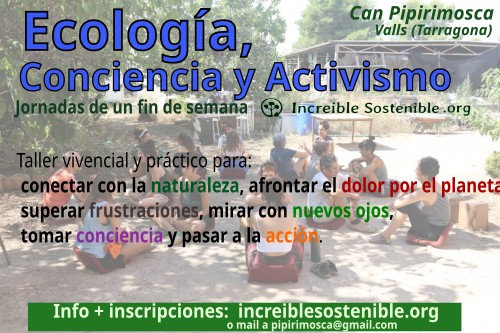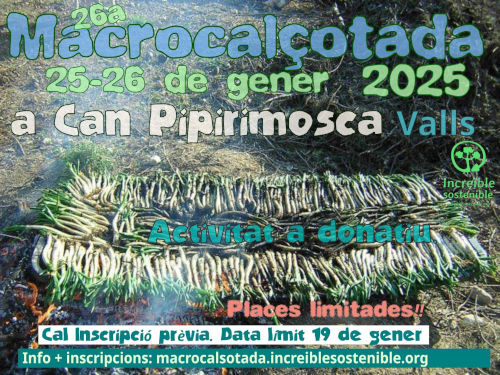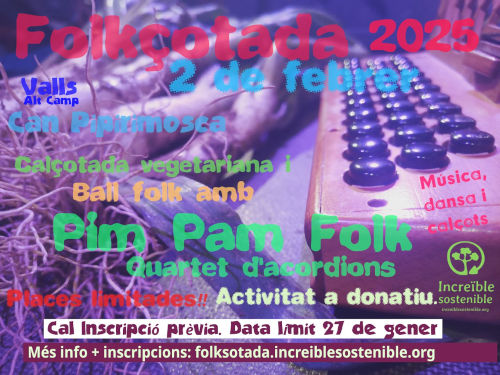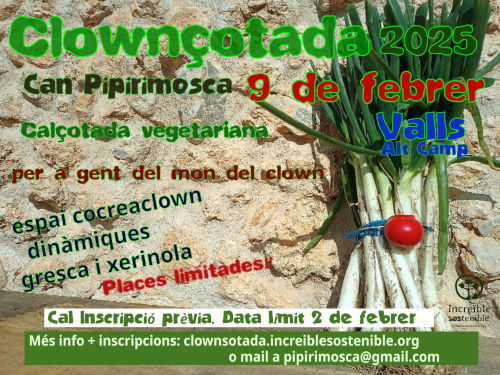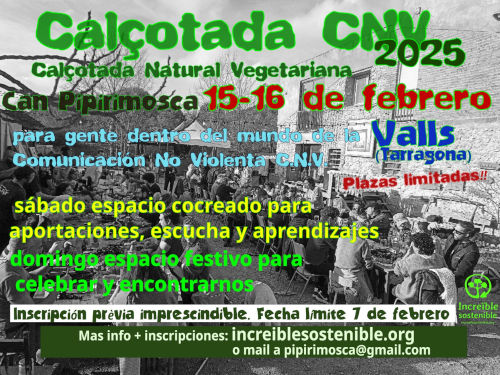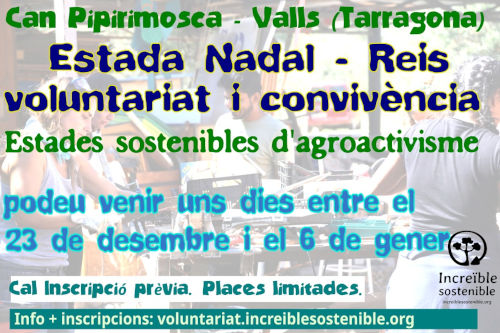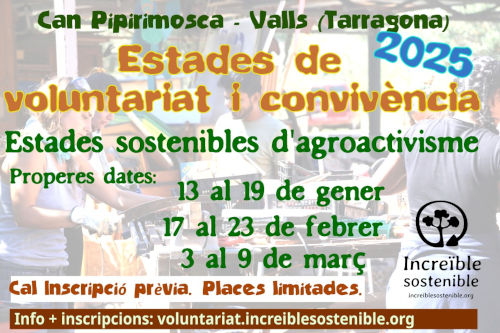Pere Vidal – increiblesostenible.org :
In a society where competition is esteemed above cooperation, it is seen as normal that the adversary, even the enemy, is someone to beat or overtake, not someone to dialogue with, to learn from, to care for or to cooperate with.
Winners are our role models - the example to follow; while losers carry a negative stigma: they are those who have not done well in the best of cases, or those who have failed or even those who are bad.
This way to put it not only pushes us to be winners, but it also does not prepare us to be losers and, what is even worse, it hides the point of view of the loser or enemy from us. We thus have an almost pathological inability to empathize with those we consider to be the bad guys in any story.
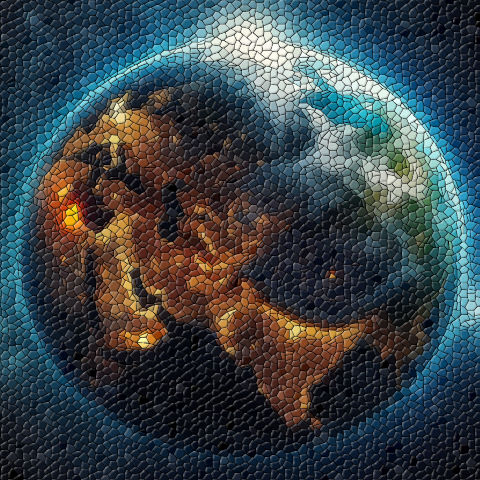 And not only that, but we confuse circumstances or actions with the individual, taking it to a personal level and dehumanizing the person we see as different or as an enemy. We all understand that if we want to fight poverty, our enemy is not the poor, but the factors that cause people to be poor, just as in the fight against hunger, our enemies are not the hungry.
And not only that, but we confuse circumstances or actions with the individual, taking it to a personal level and dehumanizing the person we see as different or as an enemy. We all understand that if we want to fight poverty, our enemy is not the poor, but the factors that cause people to be poor, just as in the fight against hunger, our enemies are not the hungry.
In the same way, we could apply this vision to ideologies, attitudes, actions, groups, or even societies, cultures or countries. If we internalize the assumption that our enemies are not people, but rather ideas, actions or attitudes, and we understand that our best ally is precisely the person behind the image of the enemy; if we listen to understand the other side and we come to understand how a human can end up in that situation, we will have dismantled the negative image of the enemy and we will be much closer to resolving the conflict.
We should not be fighting against criminals but against everything that causes people to commit criminal acts. Similarly, we can understand that in sexist, racist, fascist, xenophobic and homophobic people, our focus should be on helping these people relinquish these ideologies that are based on denial, denigration or hatred towards others. It is as simple (or as complicated) as changing fascist or criminal to "person with fascist ideas" and "person who commits criminal acts", and our focus would be on helping that person relinquish those ideas or attitudes. The same can be applied to murderers, abusers, pedophiles and genocidaires. Although if we are emotionally involved in the events, it will be much more complex and we will need support, tools and empathy to be able to travel an uncomfortable and difficult path, full of compassion, empathy, listening without judging, where the damage is revealed and our pain is welcomed: in order to be able to see the humanhood behind the person who caused the wound.
In the collective imagination, both narrative and audiovisual, of the West the image of the enemy remains dehumanized and polarized to unreal extremes. In films, stories and narratives, there is an extreme polarization of good/bad, friend/enemy. The good guys represent “us” and we identify with them. We are shown their humanity and goodness, they have families and are citizens with whom we can identify.
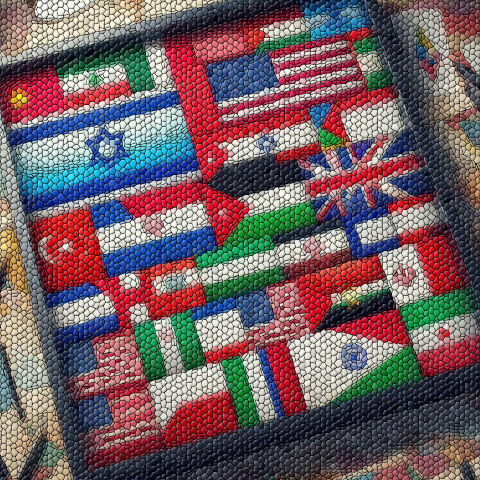 The bad guys represent the “others,” and the plot of the story places them on the side of the enemies, those to be defeated or eliminated. These people are not only shown as perverse, malevolent and tyrannical, lacking feelings and scruples, but they are treated as if they were expendable objects. In fiction, we cry for the wounded soldier who is the protagonist’s companion, but we applaud when a group of people on the side of the enemy are machine-gunned or bombed. They can be dozens or hundreds; just like stones in a wall, they are expendable and eliminable. Enemies have no family, no childhood, no feelings, and their lives have no value.
The bad guys represent the “others,” and the plot of the story places them on the side of the enemies, those to be defeated or eliminated. These people are not only shown as perverse, malevolent and tyrannical, lacking feelings and scruples, but they are treated as if they were expendable objects. In fiction, we cry for the wounded soldier who is the protagonist’s companion, but we applaud when a group of people on the side of the enemy are machine-gunned or bombed. They can be dozens or hundreds; just like stones in a wall, they are expendable and eliminable. Enemies have no family, no childhood, no feelings, and their lives have no value.
The problem is that this polarization has not remained in the world of fiction, but has become the norm of how we act and see the world and others. To dismantle this polarization, we must be able to see the evil in the good and the goodness in the bad, in order to ultimately understand that we are all simply human.
The great (and uncomfortable) exercise of humility - of recognizing ourselves on the side of the bad and understanding how the bad can be seen on the side of the good is what can help us dismantle the image of the enemy.
It is something that we humans do: looking for news or information that confirms what we already think and denying those that question it or have the opposite opinion. That is why we tend to consume the stories that make the enemy worse, and not those that humanize it and make it similar to us. It is easier for us to stick to what we already think than to question it and accept the complexity and the great grayscale that is life. It is easier to think in Black/White, Good/Bad, Right/Wrong, denying points of view that question our own and taking for granted those that reinforce it. It is easier than accepting the complexity of every situation and recognizing (and respecting) that there are many different versions of reality and that each person has his own.
It is uncomfortable to realize that our wealth and development are based, in part, on the aggression and plundering of European colonialism. It is uncomfortable and painful to see ourselves genocidal in allowing the drowning of immigrants in the Mediterranean. Even so, we can see the underlying humanity in ourselves.
Ending conflicts and injustices means stopping seeing people as enemies and starting to ask ourselves, understand and face what factors have led a person (or society) to act or think that way, both towards others and towards ourselves. And above all, it means personal work, full of humility and compassion, to see (and respect) the humanity in all people, regardless of their skin colour, origin, religion or ideology, whether they think like us or have opposing beliefs, whether they are friends or enemies.
Because our true enemy is the dehumanisation of others, very visible in hate speech, but not so visible when we apply it to those we consider enemies or those we dislike or label as bad. The dehumanisation of the enemy distances us from being able to understand each other and is a clear sign that in our society we have great shortcomings. And just as I began, I end, talking about losers and failures. Our failures clearly indicate where we can improve. Because being unable to see the human side of the enemy shows the great failure of our empathy.
Article author: Pere Vidal - increiblesostenible.org
Article published under CreativeCommons: free use, source must be cited (increiblesostenible.org)and derivatives must also be free and name the author.
Pere is an environmental and social activist, and is currently also a councillor for the CUP in Valls, an anti-capitalist and assembly party. In Valls, Vox ( a far-right party) has a councillor. Since January 2024, Pere has been giving a talk in different towns “a look at the Middle East conflict from empathy and non-violence”, preceded by a documentary about Israeli objectors. In these talks, Pere shares his experience in Israel and the occupied territories as a starting point to focus on the insensitivity of European and Western society to the human suffering of others, as well as the growth of hate speech and racism and colonialism still alive in our society, inviting us to deconstruct the image of the enemy to open the doors to meet ourselves as humans.
Pere also conducts workshops to deconstruct the image of the enemy, inviting a more compassionate and empathetic approach to the other as a basis for deactivating conflicts and dismantling prejudices. If you would like to participate or organize talks or workshops, contact the author.

This work is licensed under a Creative Commons Attribution-ShareAlike 4.0 International License.




